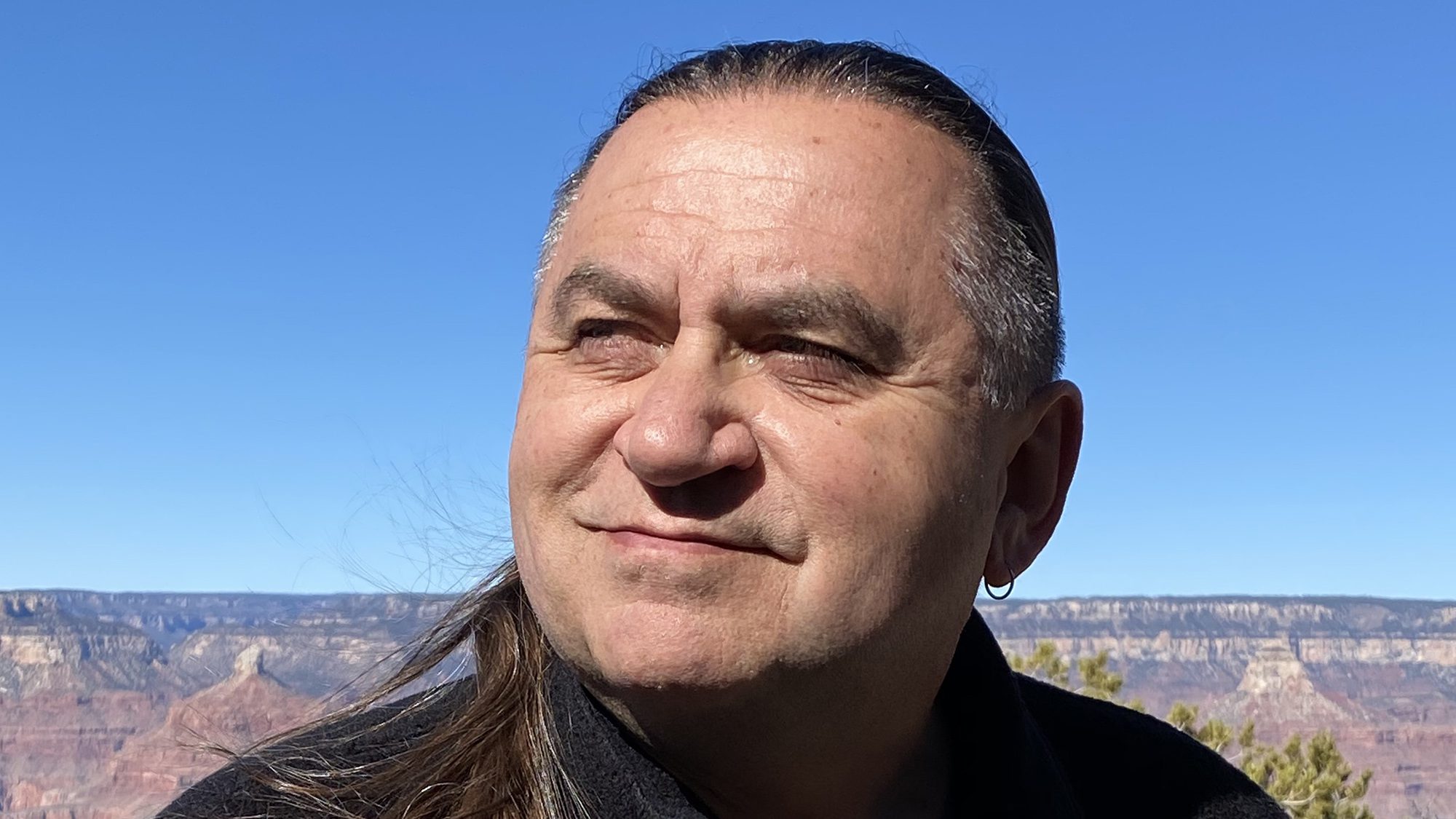Faithful storytelling inspires Indigenous translation of New Testament

The storyteller introduced himself with his spirit name: Gitchi Animiki Meno Mashkiki Manido – “Voice of Great Thunder with a Good Medicine Spirit.”
“But I’m also known as Terry Wildman,” he said. “A little easier to say, a little easier to live up to.”
Wildman was in the crowded Plyler Hall auditorium to deliver the 2023 Dr. Charles Dorsey Horton and Maxine Horton Lecture in Biblical Studies, presented by the Furman University Religion Department. A descendent of Ojibwe and Yaqui ancestors, Wildman discussed his work as lead translator, general editor and project manager for the First Nations Version (FNV), a translation of the New Testament by and for the Indigenous people of North America.
Bible translations into scores of Native American languages have been published for centuries, but the FNV takes a different approach, Wildman explained, rewording scripture in simple yet profound English crafted to resonate with the majority of modern Indigenous readers who no longer speak their mother tongues.
‘Weaponizing’ the Bible
Wildman, cofounder of the nonprofit Rain Ministries, recognized the need for a new telling of scripture about two decades ago during a jail ministry on the Hopi reservation in northern Arizona.
“I noticed that the English Bible we were reading wasn’t connecting well,” he said. “And I couldn’t find one Bible in English that had been done with Native people in mind. We were doing things in a way that didn’t relate to them culturally.”
Learning about European colonists’ attempts to assimilate and “Christianize” Native Americans gave Wildman some historical perspective. The traumatic legacy of the Federal Indian Boarding Schools of the early 1900s – many run by Christian missionary organizations – that shamed and punished Indigenous children for practicing their own cultures and languages has scarred generations since, he said.
“I’m not ashamed of the Gospel,” said Wildman. “I’m ashamed of the way it was brought here – taking a message of love and acceptance and goodwill and faith and weaponizing the Bible against our people.”
‘Our cultures can bless each other’
Seeking a way to undo the damage, the minister began experimenting with reframing scripture in the familiar oral storytelling traditions of Native Americans, using more recognizable cultural idioms and language. In the stories that evolved into the FNV, “God” became “Creator” or “Great Spirit.” “Son of Man” became “True Human Being.” “The Kingdom of God” became “The Creator’s Good Road.” “Sin” became “bad hearts” or “broken ways.”
And the messages began connecting, Wildman said – at the Hopi reservation jail and beyond, at tribal centers, powwows and churches across the country where he and his wife, Darlene Wildman, traveled with their music ministry, RainSong.
The translations have helped give modern readers of all backgrounds, Indigenous or otherwise, a fresh appreciation for scriptural messages, said Wildman. And the centuries-old tradition of recasting a story to suit an audience and its culture was employed by the writers of the Gospels themselves, he said.
“We believe our cultures can bless each other,” Wildman said. “A good storyteller will make sure the essence of the story is not changed. If you read Matthew, Mark, Luke and John, you will hear four different stories that all basically are trying to tell the same story to different audiences in unique ways..”
Wildman began consulting a translation council selected from a cross-section of Native North Americans, representing diverse tribes and geographic locations. After five years of work, InterVarsity Press published the FNV in 2021 – “in terms of Bible translations, brand-spanking new,” noted moderator Bryan Bibb, a professor of religion.
Translations of the Old Testament books of Psalms and Proverbs are in the works, Wildman said.
Helen Lee Turner, a professor of religion, prefaced the Cultural Life Program (CLP) event with the land acknowledgement adopted by the university in 2019, stating that the campus “occupies traditional land of the Cherokee people, a land where the Catawba and other Indigenous people might have found food.”
“We don’t read this at every CLP,” Turner said, “but it seemed appropriate here.”